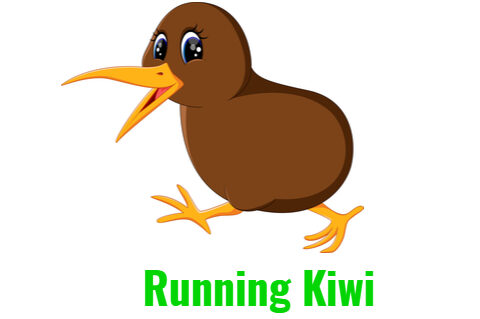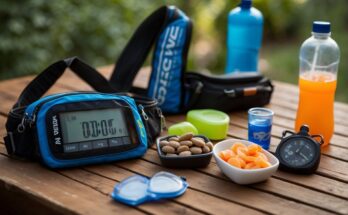Ultrarunning is a sport that requires a lot of endurance, strength, and mental toughness. Running distances of 50 miles or more can be incredibly challenging, and it’s important to properly fuel and hydrate your body to avoid hitting the dreaded “wall” and to maintain your energy levels throughout the race. A proper hydration and fueling plan is essential for any ultrarunner to perform at their best.
There are many factors to consider when creating a hydration and fueling plan for an ultrarunner, including the length of the race, the weather conditions, and the runner’s individual needs and preferences. It’s important to find the right balance of carbohydrates, protein, and fats to keep your body fueled and to replenish lost nutrients. Hydration is also crucial, as dehydration can lead to a decrease in performance and even serious health issues.
In this article, we will provide a comprehensive guide to hydration and fueling for ultrarunners. We will cover the basics of nutrition and hydration, as well as specific strategies for different stages of the race. Whether you’re a seasoned ultrarunner or just starting out, this guide will provide valuable information to help you perform at your best and reach the finish line strong.
Why Hydration and Fueling is Important for Ultrarunners
Ultrarunning is a physically demanding sport that requires a tremendous amount of energy and endurance. Proper hydration and fueling are crucial for ultrarunners to perform at their best and avoid injury or illness.
During an ultramarathon, the body loses a considerable amount of fluids and electrolytes through sweat, and the muscles deplete glycogen stores. This depletion can lead to dehydration, muscle cramps, fatigue, and even organ failure in severe cases. Therefore, ultrarunners must consume enough fluids and nutrients to replenish what is lost and maintain optimal performance.
Hydration is essential for regulating body temperature, delivering nutrients to the muscles, and removing waste products. Ultrarunners should aim to drink at least 16-20 ounces of fluid every hour and increase their intake during hot and humid conditions. It’s also essential to replace electrolytes lost through sweat, such as sodium, potassium, and magnesium, to prevent cramping and maintain proper muscle function.
Fueling is equally important as hydration in ultrarunning. The body needs a constant supply of energy to sustain prolonged activity, and ultrarunners should consume carbohydrates, fats, and proteins to maintain energy levels. Carbohydrates are the primary source of energy during exercise and should make up at least 50% of the total caloric intake. Fats and proteins are also essential for endurance exercise as they provide a slow and steady source of energy and help repair and build muscle tissue.
Overall, proper hydration and fueling are critical for ultrarunners to perform at their best and avoid injury or illness. Ultrarunners should develop a hydration and fueling plan tailored to their individual needs and adjust it based on weather conditions, terrain, and race distance.
Hydration Strategies for Ultrarunners
Staying hydrated is crucial for ultrarunners, as dehydration can lead to fatigue, cramping, and even heat stroke. Here are some hydration strategies to help you stay hydrated during your ultra:
- Drink regularly: Don’t wait until you’re thirsty to drink. Drink small amounts regularly, even if you don’t feel thirsty.
- Carry water: Make sure you have a way to carry water with you during your run. This can be a hydration pack, handheld water bottle, or waist belt.
- Electrolyte replacement: Electrolytes are minerals that help regulate fluid balance in the body. When you sweat, you lose electrolytes, so it’s important to replace them during your run. You can do this by drinking sports drinks or taking electrolyte supplements.
- Monitor your urine: Check the color of your urine to monitor your hydration level. If your urine is dark yellow, you may be dehydrated and need to drink more fluids.
- Plan your hydration stops: If you’re running a race, plan ahead for hydration stops. Know where the aid stations are and how far apart they are so you can plan your hydration accordingly.
Remember, everyone’s hydration needs are different, so it’s important to experiment during your training runs to find what works best for you. Don’t wait until race day to try out new hydration strategies.
Fueling Strategies for Ultrarunners
Ultrarunning is a grueling sport that requires a lot of energy. It is important for ultrarunners to fuel their bodies properly in order to maintain their energy levels and avoid hitting the dreaded “wall”. Here are some fueling strategies that ultrarunners can use to keep their bodies fueled and ready to go:
- Consume carbohydrates: Carbohydrates are the primary source of energy for the body during exercise. Ultrarunners should consume carbohydrates before, during, and after their runs to maintain their energy levels. Good sources of carbohydrates include fruits, vegetables, whole grains, and sports drinks.
- Stay hydrated: Hydration is key for ultrarunners. Dehydration can lead to fatigue, cramping, and a host of other problems. Ultrarunners should drink plenty of fluids before, during, and after their runs to stay hydrated. Water and sports drinks are good options.
- Consume protein: Protein is important for muscle recovery and repair. Ultrarunners should consume protein after their runs to help their muscles recover. Good sources of protein include lean meats, fish, eggs, and protein bars.
- Consume electrolytes: Electrolytes are important for maintaining proper fluid balance in the body. Ultrarunners should consume electrolytes during their runs to help prevent dehydration and maintain their energy levels. Good sources of electrolytes include sports drinks and electrolyte tablets.
Ultrarunners should also experiment with different fueling strategies during their training runs to see what works best for them. Some ultrarunners prefer to eat solid foods during their runs, while others prefer to stick to liquids. It is also important for ultrarunners to consume enough calories to fuel their bodies during their runs. Ultrarunners should aim to consume 200-300 calories per hour during their runs.
Pre-Race and Post-Race Hydration and Fueling Tips
Proper hydration and fueling are crucial for ultrarunners to perform at their best. Here are some tips to help you prepare for your next race:
Pre-Race
Leading up to the race, ensure you are well-hydrated by drinking plenty of fluids. Aim to drink at least 2-3 liters of water per day in the week leading up to the race. You can also consume sports drinks or coconut water to replenish electrolytes.
Eat a balanced diet with a mix of carbohydrates, proteins, and healthy fats. Carbohydrates are especially important for endurance athletes, as they provide the body with the energy it needs to perform. A few days before the race, increase your carbohydrate intake to ensure your glycogen stores are topped up.
On the morning of the race, have a light breakfast that is easy to digest, such as toast with peanut butter or a banana with almond butter. This will provide you with the energy you need without weighing you down.
Post-Race
After the race, your body will need to replenish the nutrients it has lost. Start by rehydrating with water or a sports drink. Aim to drink at least 16-20 ounces of fluid for every pound of body weight lost during the race.
Eat a balanced meal within 30 minutes of finishing the race. This should include carbohydrates to replenish glycogen stores, protein to repair muscle damage, and healthy fats to reduce inflammation. Good options include a turkey and avocado sandwich on whole grain bread or a quinoa salad with grilled chicken.
Continue to drink fluids and eat small, frequent meals throughout the rest of the day to help your body recover. You can also consider taking a recovery drink or supplement to aid in muscle repair and reduce inflammation.
By following these pre-race and post-race hydration and fueling tips, you can help ensure that your body is properly fueled and hydrated for optimal performance and recovery.
Conclusion
Ultrarunning is a challenging sport that requires proper hydration and fueling to maximize performance and avoid potential health risks. By following the guidelines outlined in this hydration and fueling guide, ultrarunners can stay properly fueled and hydrated throughout their races.
Remember to start hydrating days before the race, and continue to drink fluids throughout the event. It’s important to consume a mix of carbohydrates, protein, and fats to keep your energy levels up and prevent muscle damage. Don’t forget to experiment with different foods and hydration strategies during your training to find what works best for you.
Additionally, it’s crucial to pay attention to your body’s signals and adjust your hydration and fueling plan accordingly. If you experience symptoms such as nausea, dizziness, or cramping, it may be a sign that you need to modify your nutrition or hydration intake.
By following these tips and listening to your body, you can stay healthy and strong during your ultrarunning journey.




